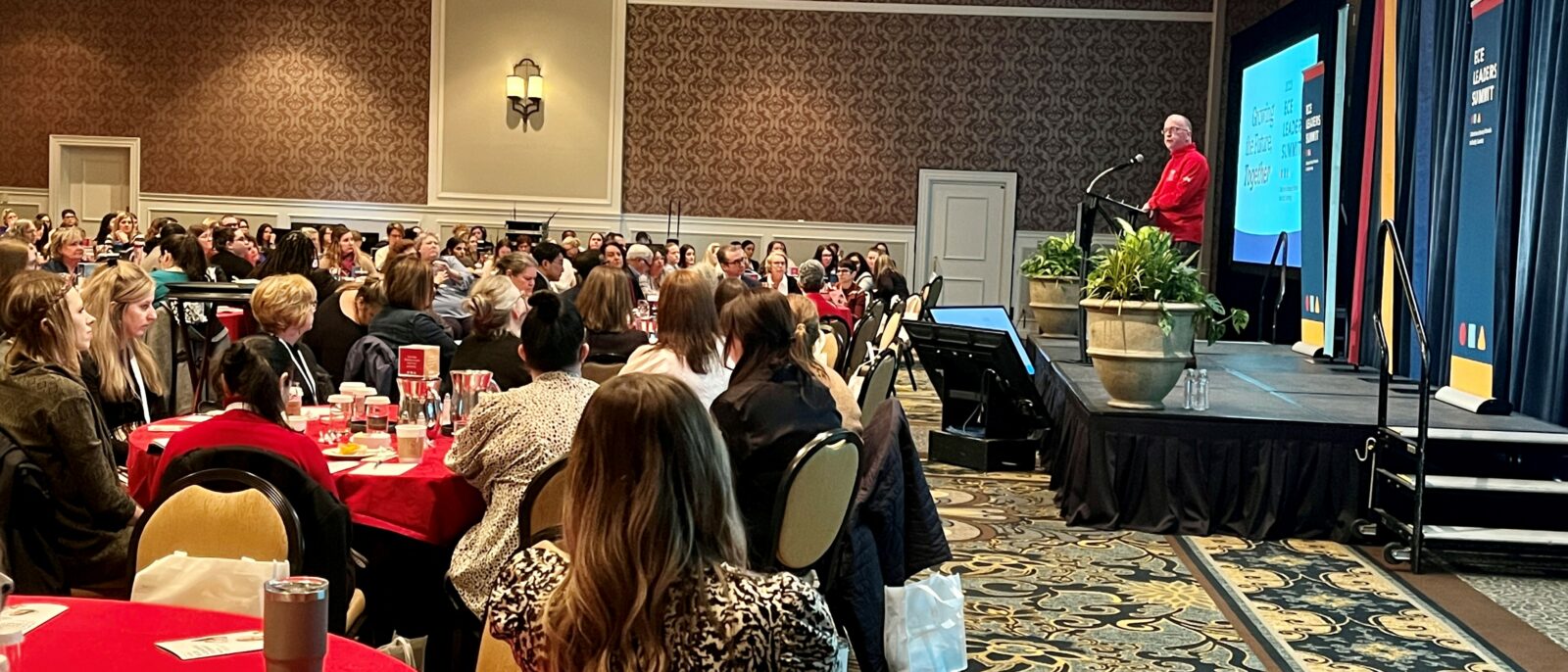Growing the Future, Together: Convening the Country’s Top ECE Thinkers
Last week, Catherine Hershey Schools for Early Learning (CHS) hosted the inaugural ECE Leaders Summit in Hershey, PA, to spark important conversations, form new relationships, and consider innovative approaches in the early childhood education environment that support whole child approaches, individual community needs, and ending the cycle of generational poverty.
National experts speaking at the event included leading academics from the Buffet Early Childhood Institute and Harvard Graduate School of Education, as well as organizational leaders of organizations including CAP Tulsa, Educare Learning Network, and Generation Hope.
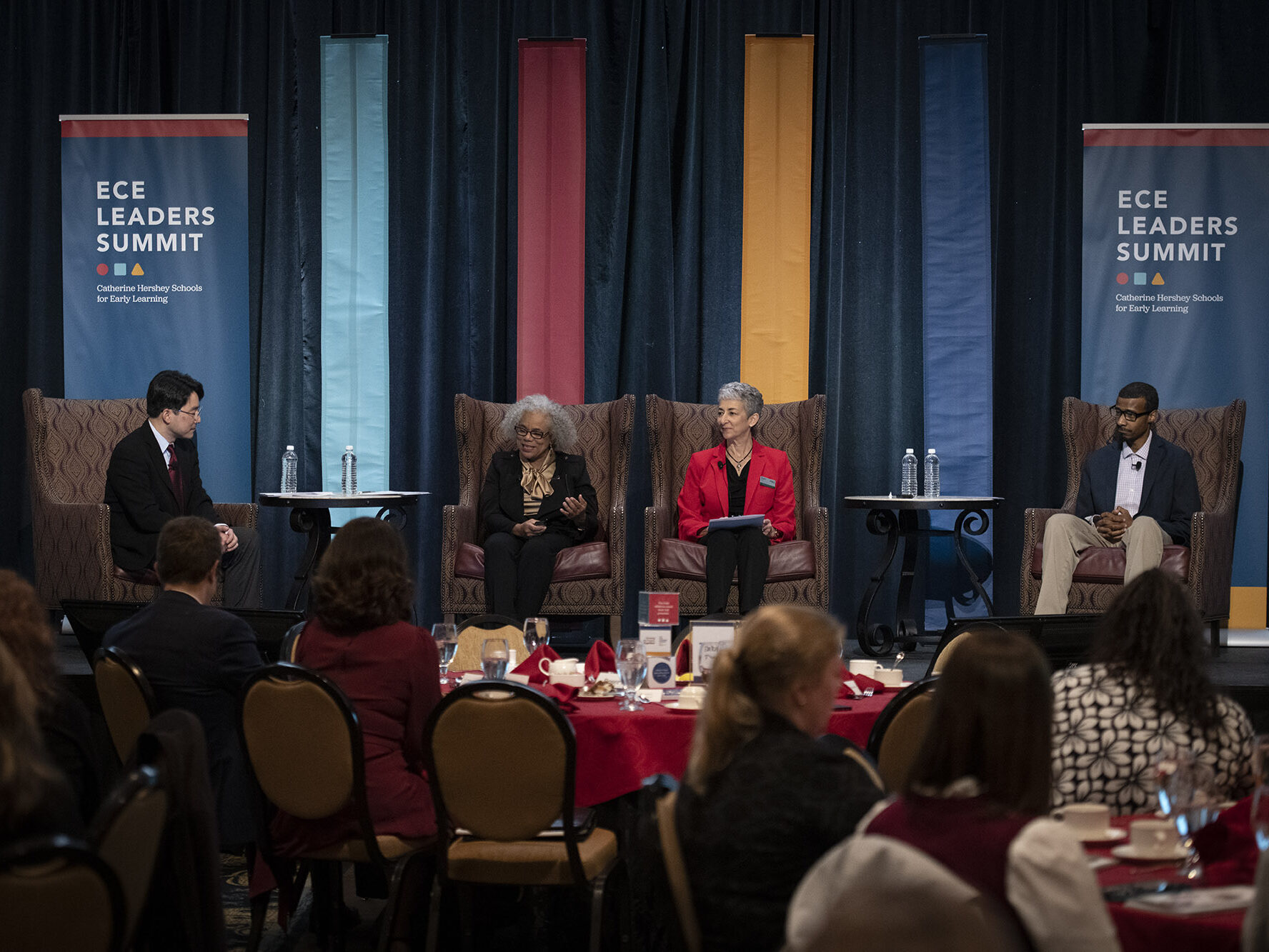

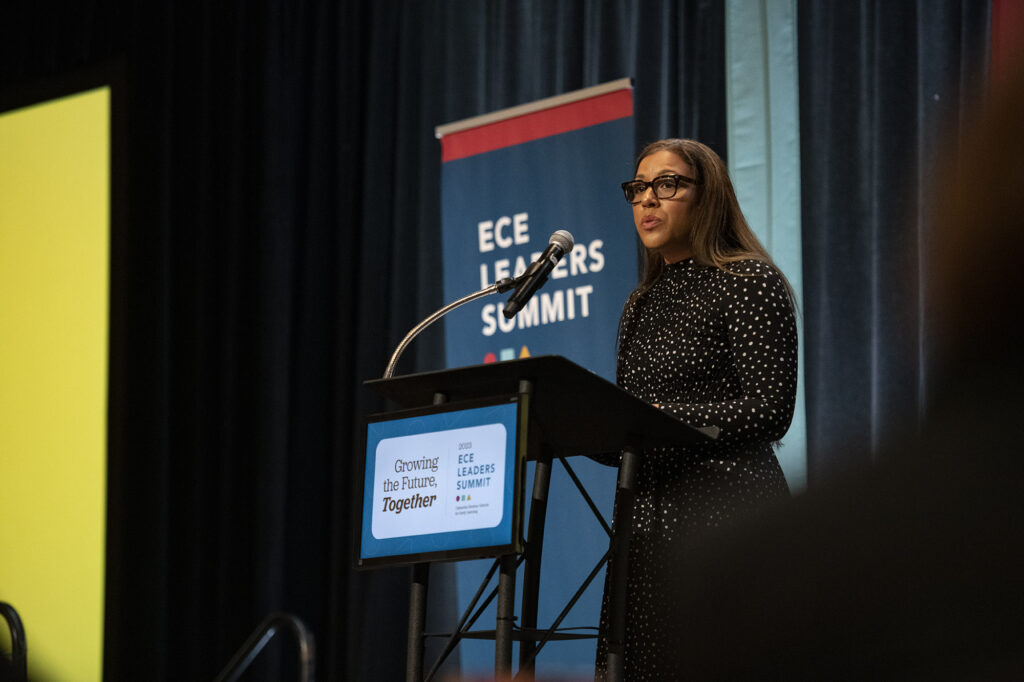
Attendees included educators, social workers, advocates, and policymakers from Central Pennsylvania who participated in panel discussions led by ECE experts from a wide range of local and national organizations and discussed critical topics in ECE in breakout sessions. The event highlighted the importance of establishing relationships within the early learning community and working toward solving problems with creativity and collaboration.
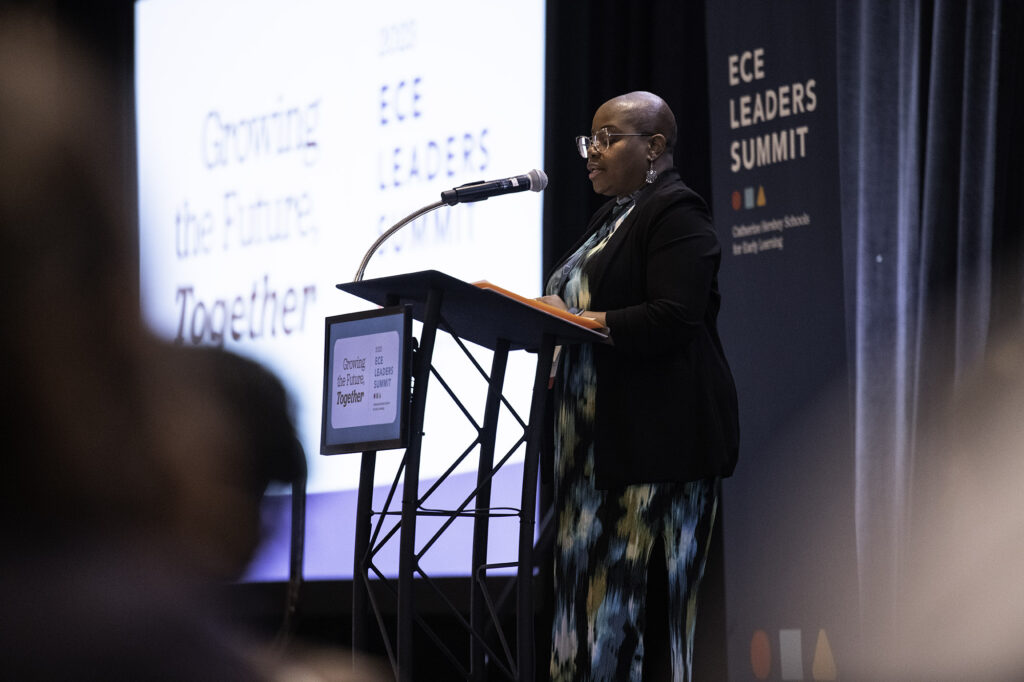
- Noteworthy Speakers
- The Acting Deputy Secretary of Pennsylvania’s Office of Child Development and Early Learning (OCDEL), Shante’ Brown, noted in her speech that the work being done by her office and its early learning partnerships does not exist in a bubble. “In addition to hard work and dedication, we will need ongoing partnerships, creative conversations, and solutions throughout the state to make early childhood education a priority.”
- Ralph Smith, Managing Director of the Campaign for Grade-Level Reading, spoke on the importance of delivering children and families the support and services needed to succeed. “More children are stranded on a cliff on the wrong side of a gap that is even larger than it was a few years ago,” said Smith. “Our job is to work alongside families to envision bold goals for their children.”
- Dr. Walter Gilliam, Executive Director of the Buffett Early Childhood Institute at the University of Nebraska and Richard D. Holland Presidential Chair in Early Childhood Development, explained the importance of building bridges between all the environments in which children live. “Children exist in the context of their family and their community. Quality ECE involve parents and families and that involvement remains with them throughout their lives.”
- Dr. Junlei Li, program chair of the Human Development and Education and the Saul Zaentz Chair in Early Childhood Education at Harvard Graduate School of Education reminded everyone that positive childhood experiences mitigate the effects of adverse childhood experiences. He noted that quality ECE programs are built on connection, reciprocity, inclusion, and the opportunity to grow and create positive childhood experiences, which build resilience in children. “Don’t just remove the bad, promote the good.”
- Nicole Lynn Lewis, founder and chief executive officer of Generation Hope, shared excerpts from her book, Pregnant Girl: A Story of Teen Motherhood, College, and Creating a Better Future for Young Families, which outlines her experiences as a young mother and provides insight into how poverty and systemic racism prevent teen parents from attaining academic success. She explained how her program, Generation Hope, assists and supports young parents through access to higher education. She noted that fewer than 2 percent of teen mothers go on to get a degree before the age of 30. “It only takes $6,000 to support a teen parent in college. A college education is critical. It matters. It’s long-lasting. It’s important.”
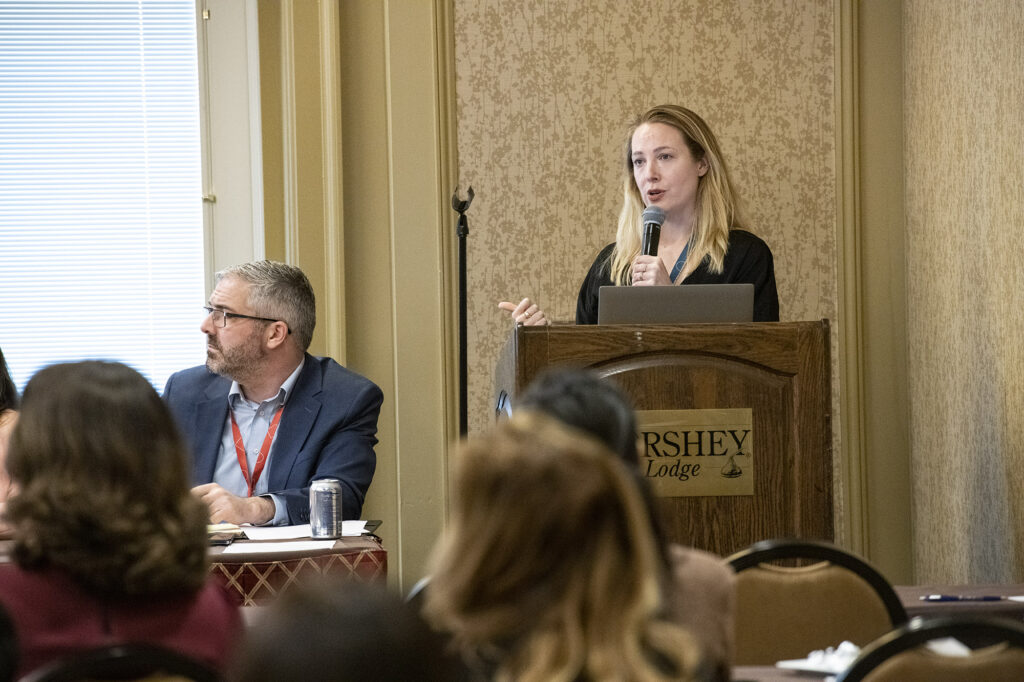
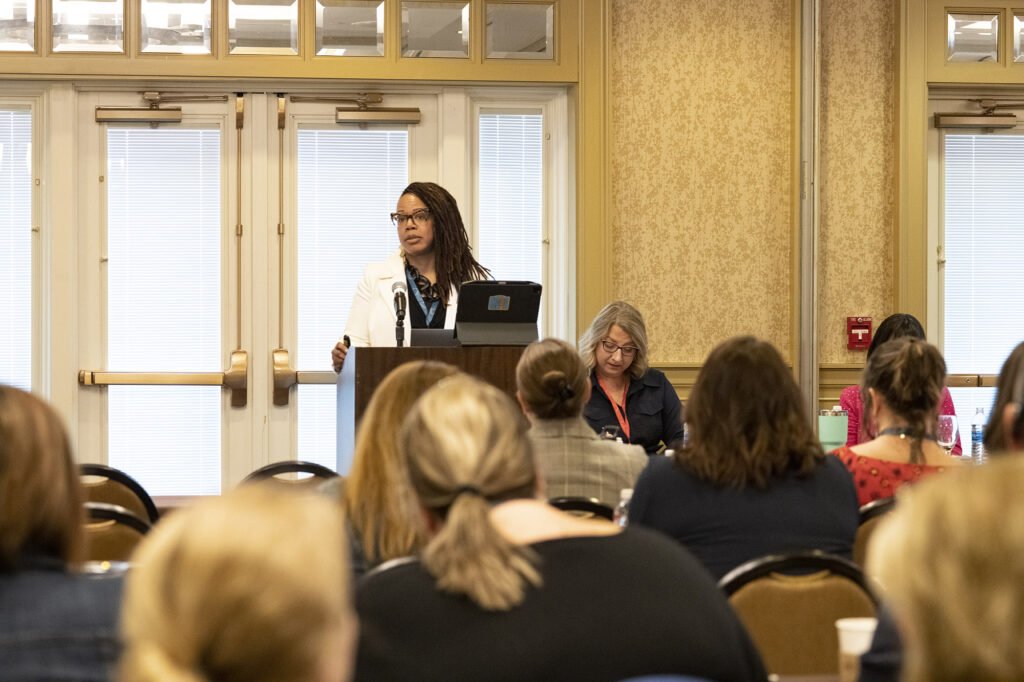
- Overview of individual panels and tracks
- The Evolution of Programs in Response to Community Needs. In addition to Junlei Li’s general session, he also moderated a panel discussion that highlighted how programs such as CAP Tulsa and Educare, demonstrate the importance of a family-based approach and the need to grow and adapt. Panelists, including Educare Learning Network Executive Director Cynthia D. Jackson, CAP Tulsa Executive Director Karen Kiely, and CHS Executive Director, Senate Alexander, discussed the importance of creating community partnerships to give ECE programs the ability to lean on a whole network of providers to meet the ongoing needs of families in an ‘ecosystem’. The panel concluded that ECE providers should build open systems, with reciprocal partnerships in which the existing assets of the community are included.
- Instruction and Leadership Track. Discussions highlighted the need for equitable professional learning in education and to create additional opportunities for collaboration. Play-based learning experts discussed the value of creating spaces that enable children to express their natural curiosity and interests to promote positive long-term outcomes.
- Whole Child Track. Discussions focused on the role of ECE in improving the mental, social, and physical health of children through integrated solutions and building lifelong foundations. Speakers emphasized that programs should rigorously assess outcomes and create feedback that can improve programs for children and families.
- Two-Generational Impact Track. Experts presented strengths-based approaches to working with struggling families, showing how focusing on individuals’ strengths can promote well-being. They also looked at breaking down biases and inviting caregivers into the child development process. Discussions showed that home visits increase recipients’ participation in other family support programs and improve outcomes.
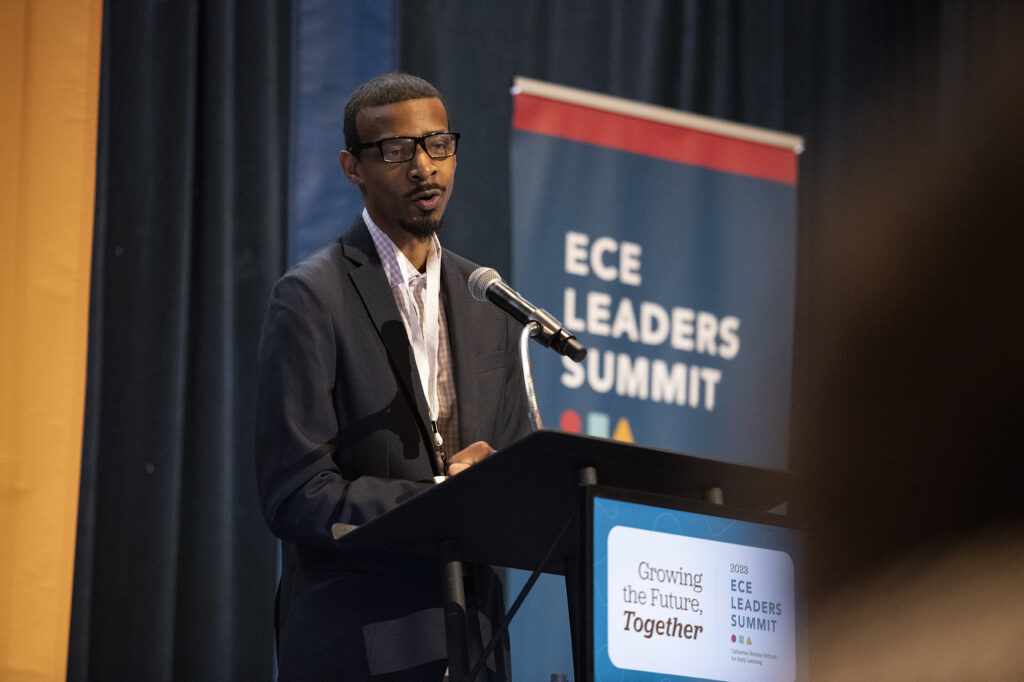
- What’s next?
- CHS Executive Director Senate Alexander reiterated the Summit’s emphasis on the importance of collaboration and working towards shared goals. “We need to think how we can learn and share as we walk through this life together.”
- Milton Hershey School (MHS) and CHS President Pete Gurt said, “As we work towards the opening of CHS and its Centers, it is our commitment to learn from those in the broader community who have been providing early childhood education for years and partner with them to continue to grow our ability to better serve families.”
- MHS Board of Managers Chair Diane Koken noted that CHS’ work will contribute to knowledge in the early learning field. “Beyond our direct work with children and their families, CHS is dedicated to conducting long-term research to monitor the impact and success of the program to share and inform the wider industry and improve the lives of even more children.
- CHS Executive Director Senate Alexander said at the end of the conference that despite the challenges and barriers facing those who have chosen to dedicate their lives and their careers to helping children and families, “We can do this, and we can do this together.”
- CHS Executive Director Senate Alexander reiterated the Summit’s emphasis on the importance of collaboration and working towards shared goals. “We need to think how we can learn and share as we walk through this life together.”
Catherine Hershey Schools for Early Learning is part of Milton Hershey School’s $350 million initiative to initially develop six Early Childhood Education Centers in Pennsylvania. This is an intentional ECE initiative aiming to build its model based on setting children up for success in early formative years and impacting families as a whole. CHS’ family success model will come alongside families to provide a stable foundation utilizing a two-generation approach.
The first Center, CHS Hershey, will open in Hershey, PA in the fall, to serve children six weeks to age 5, providing non-residential weekday education and care while connecting families with the resources needed to succeed — with all costs covered for qualifying families.

